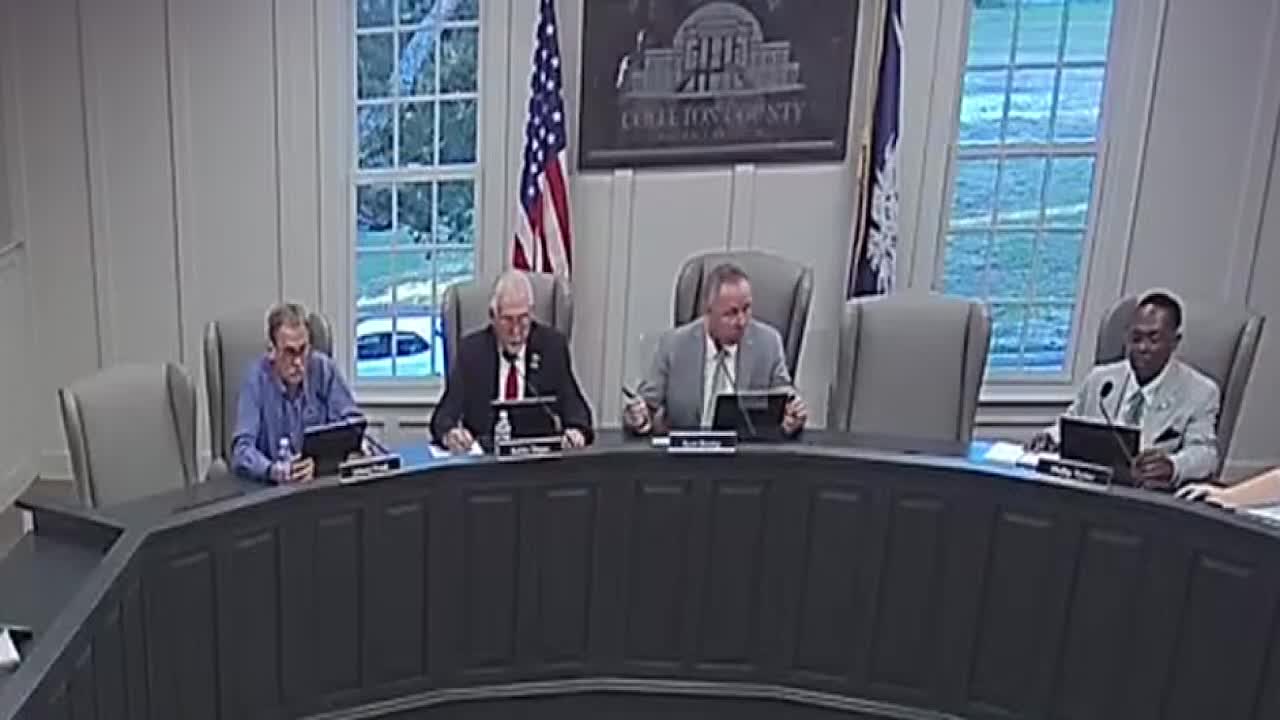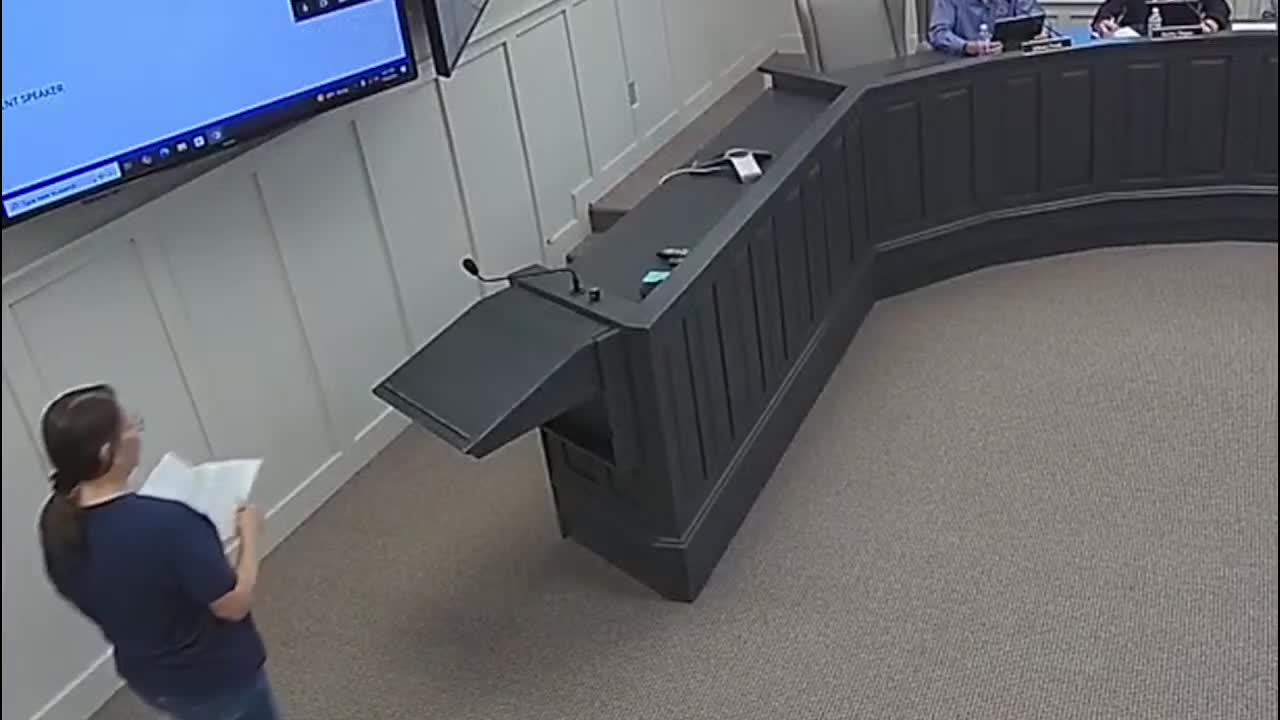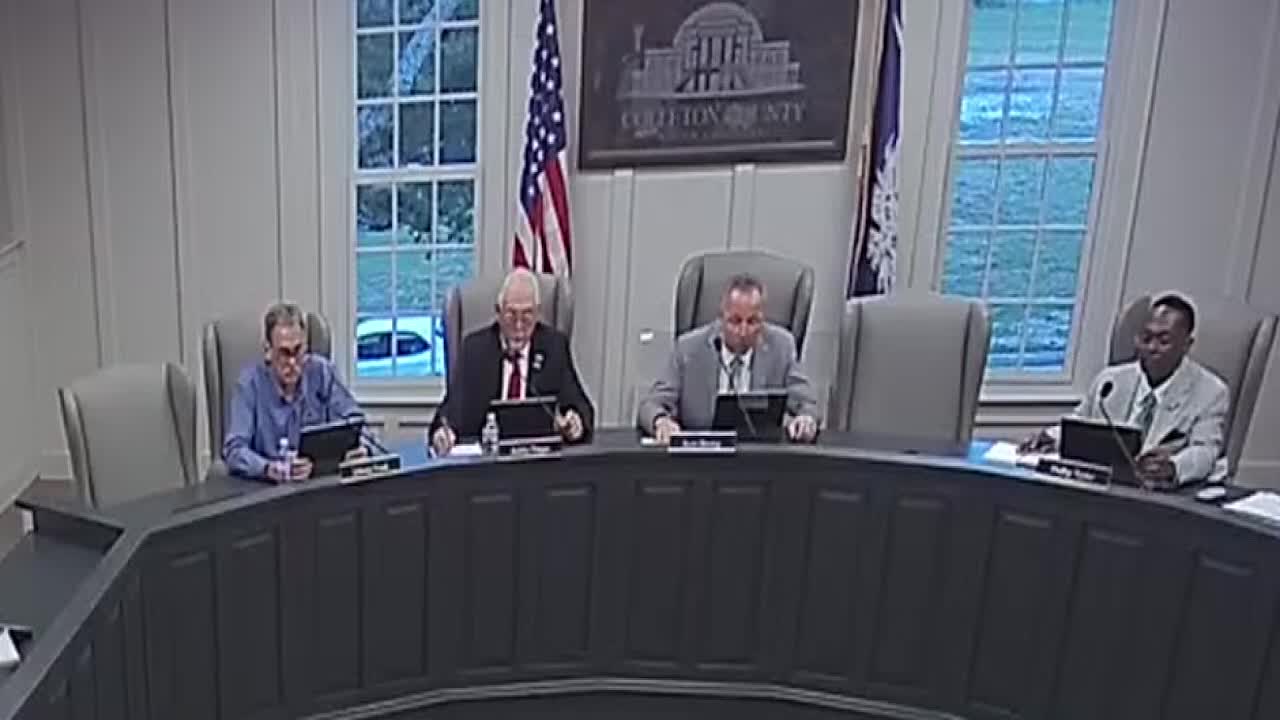Article not found
This article is no longer available. But don't worry—we've gathered other articles that discuss the same topic.

Colleton County council advances changes to animal-control enforcement

Residents question data-center ordinance’s size and environmental limits during Colleton County hearing

